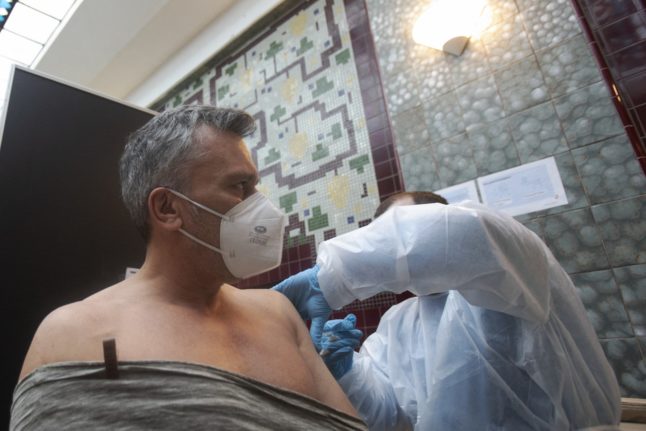Coronavirus lockdown
The big question on everyone’s lips at the end of January was ‘how much longer will this lockdown last?’
On February 1st, the Austrian government announced a range of coronavirus relaxations.
Please click the following link for more information.
EXPLAINED: What are Austria's new coronavirus lockdown rules?
Vaccinations
Austria will enter ‘phase two’ of its coronavirus vaccination scheme in February.
Phase two, expected to start in February 2021, will see health workers and people in other vulnerable categories vaccinated.
Q&A: Everything you need to know about Austria's coronavirus vaccination program
Other people in so-called “systemically relevant” professions will also be vaccinated as part of this phase.
Der Standard reports this includes police officers, employees in the food industry, transport companies and others, as well as teachers and employees of kindergartens and schools.
Starting in April, phase three will see the vaccine available to the general public.
This will include those who are already sick with Covid-19.
UPDATED: How can I get vaccinated for Covid-19 in Austria?
Vignette
In order to drive on Austria's motorways, you'll need a vignette.
The current blue vignette expired on Sunday, January 31st – meaning that if you’re still driving on it, you’re risking a fine.
The new vignette – which is lime green – has been valid since December 1st, 2020. You’ll need to swap over as soon as possible.
Read the following link to find out more about Austria’s vignette system – including how to buy a new one.
EXPLAINED: What you need to know about Austria's vignette motorway toll stickers
Tighter security for online shopping
Many consumers buy online with a credit card nowadays – particularly because it is so uncomplicated: card number, verification number and expiry date are enough to pay for goods and services at the virtual checkout.
The problem is, though, that criminals and hackers have a comparatively easy game and can go on shopping sprees on the Internet with stolen customer data without any obstacles.
Therefore, a so-called “two-factor authentication” is supposed to provide more security for online shopping. The stricter security regulations for paying by credit card on the internet will not take full effect until March 15th, but according to new EU rules, the obligation for “customer authentication” is a gradual model:
Since January 15th, payments of €250 or more must be approved with two independent factors, and as of February 15th, “two-factor authentication” will apply to payments of €150 or more.
More information is available here.
Lent begins
The end of the carnival season, Ash Wednesday, falls this year on February 17th.
For Christians, this day also marks the beginning of Lent, which lasts until Easter.
Many people in Austria abstain from various things during these seven weeks, including sweets, meat, alcohol and tobacco.
WhatsApp postpones introduction of new privacy rules
WhatsApp is postponing the introduction of its new privacy rules by more than three months following heavy criticism and an exodus of users.
Previously, consumers had to agree to the new terms by February 8th to continue using the Facebook-owned chat service.
Now the new privacy policy will only apply from May 15th, the messaging service announced in a blog post.
WhatsApp wants to use the time to clear up false information and misunderstandings surrounding the update, it says.



 Please whitelist us to continue reading.
Please whitelist us to continue reading.
Member comments